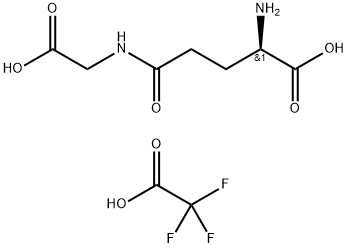γ-D-Glutamylglycine (γ-DGG) is an antagonist of the excitatory amino acids NMDA , quisqualate, kainate, and glutamate.
1 It decreases the amplitude of excitatory post-synaptic potentials (EPSPs) in electrically stimulated rat hippocampal slices when used at a concentration of 200 mM. Subdural administration of γ-DGG inhibits NMDA-, kainate-, or quisqualate-induced paw biting, indicating antinociceptive activity, in mice (EC
50s = 63, 9.5, and 31 μM, respectively).
2 γ-DGG reduces sound-induced wild running and inhibits the clonic and tonic phases of sound-induced seizures in DBA/2 mice (ED
50s = 0.058, 0.046, and 0.054 μmol, i.c.v., respectively).
3
